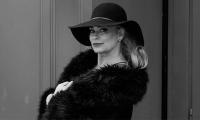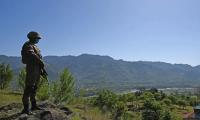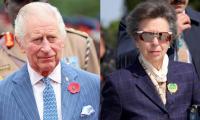It was Sunday morning on March 3, 2019. The last day of the KLF was about to start when Dr Ayoub Shaikh posted on Facebook a most devastating piece of news for the friends and students of Jawaid Bhutto. He had been killed in broad daylight in the capital of the most advanced and powerful country of the world. Washington DC is not an unlikely place to get killed in the US. Somebody can murder you there, as they can do in Chicago or New York. But for Jawaid Bhutto it was an unlikely place.
This column is not an obituary, nor is it a lamentation of American law and order. Obituaries are normally written of people who are famous, notorious, or rich. Jawaid was none of these, but to his dozens of friends and hundreds of students he meant a lot. His life was a lesson for many, right from his decision to quit medical studies to his opting for philosophy as his vocation, and from socialism to Sufism as his preferred mode of thinking, Jawaid Bhutto carried a torch for many. A look at his life gives us a reflection of the past four decades both in and out of Pakistan.
In the early 1980s, Pakistan was under General Ziaul Haq’s dictatorship. Five of the 11 years of his repressive rule had already seen a prime minister going to the gallows, and not hundreds but thousands of activists, democrats, journalists, intellectuals, and political leaders arrested, sentenced to imprisonment, or lashed in full public view. It was a reign of terror unleashed by General Ziaul Haq against all those who wanted to see Pakistan return to civilian rule and strived to make it a democratic and welfare state rather than a state based on religious and sectarian strife.
The Movement for the Restoration of Democracy (MRD) was in full swing but it was mostly confined to Sindh. Punjab, which had supported Z A Bhutto for at least 10 years and had seen PPP workers immolate themselves in protest against the death sentence to him, was now relatively calm. The press was in chains and under siege as described by Zamir Niazi, a journalist and writer who documented the establishment’s onslaught against freedom of expression. While the MRD struggle raged across Sindh, the rest of Pakistan was relatively calm with a graveyard silence imposed on it.
It is in this background that I met Jawaid Bhutto in Karachi in the early 1980s. He belonged to Shikarpur, went to Bolan Medical College to study medicine, soon got tired of it, and moved to Karachi University to study philosophy. I was still a teenager studying at the Government College of Technology (formerly Karachi Polytechnic Institute) near Sher Shah. Student politics in Karachi was dynamic and vibrant, with the Islami Jamiat Talaba (IJT) supported by General Zia on the one side, and some liberal, left-wing and progressive student unions on the other. It was not a level playing field.
Jawaid Bhutto and I belonged to the Democratic Student Federation (DSF). This new DSF was sort of a reincarnation of the old DSF that was active in the 1950s and was led by progressive student leaders such as Dr Adeebul Hasan Rizvi, Dr Haroon Ahmed, Dr Muhammad Sarwar (father of journalist Beena Sarwar), Dr Rehman Hashmi and many others. This new DSF, in which Jawaid Bhutto and I met, was a nursery of progressive ideas for many of us. Jawaid Bhutto was almost ten years older than me and he served as a guide and mentor for countless young students.
Rarely does one come across a young man who is so immersed in knowledge of almost all social sciences, especially of philosophy. His room was always full of books in English, Sindhi and Urdu. He was not one of those who pretend to read a lot by displaying books and by dropping names of philosophers and writers. His understanding of political ideas, social theories and philosophical frameworks was immense and he was always ready to impart his knowledge to anyone who came to him and showed a willingness to learn. He was always open and smiling, even at the most stupid of questions.
As the MRD was not visible in Karachi, the students of the DSF and other progressive student outfits decided to stage protests, do wall chalking against the dictatorship, and even hijack and torch buses. Jawaid Bhutto was less of an activist and more of an intellectual with us. He and his brother Shahid Bhutto were also music lovers, composed poetry into songs and recited poetry – from Faiz Ahmed Faiz to Shaikh Ayaz. They were also active with us in the Dastak Theatre Group led by the legendary Aslam Azhar and Mansoor Saeed (father of actress Sania Saeed).
But the might of the dictatorship was not mild for anyone who dared to challenge the narrative of jihad in Afghanistan and promotion of sectarianism in Pakistan under the guise of Islamisation. The goons of the IJT were targeting all liberal and progressive student activists and the DSF was no exception. In these bleak times, many left the country. Some went to Afghanistan, Bulgaria, Czechoslovakia, East Germany, India, Libya, Scandinavian countries, Soviet Union, and Syria. When Jawaid Bhutto and I left Pakistan and went to India, we were accompanied by Farhan Azmi, son of comrade Dr Aizaz Nazeer, and Khurram Khalid, son of comrade Saif Khalid.
Fehmida Riaz was already there and had been declared a traitor in Pakistan. The death of Fehmida Riaz last year in Lahore and the way she was paid homage and respect across the country proves that the label of traitor only enhances the public prestige of the victims of state repression and not the other way round. It was in India that Jawaid and I spent months together. His grasp of Indian art and culture, history, philosophy, politics and religions was impressive to say the least. Even there, he was always looking for books and engaged in heated discussions with our hosts, especially with Noor Zaheer, daughter of Sajjad Zaheer.
Ultimately, Jawaid went to Bulgaria, and I landed in Patrice Lumumba Peoples’ Friendship University in Moscow. Our stay there relieved us of our romantic revolutionary zeal as we saw the socialist system in the full monty, warts and all. The crumbling of the socialist bloc prompted us to rethink the so-called universal applicability of Marxism that was our staple earlier. We came back to Pakistan almost at the same time in the late 1980s. He joined the University of Sindh as a lecturer in philosophy, and I was given a copywriting job in IAL/ Saatchi by Sarmad Ali (now MD of Jang Group).
In 1990, Jawaid had to suffer a major blow within his family when his sister, Fouzia Bhutto was murdered in her medical college hostel in Karachi. The murderer was Rahim Bux Jamali, a political leader who was arrested and spent some years in jail. After almost 20 years, Jamali was also murdered by someone on another account. It was during the murder trial of his sister that Jawaid came to know journalist Nafisa Hoodbhoy, sister of Dr Pervaiz Hoodbhoy. They got married in the mid-1990s. Jawaid continued to teach and enlighten his philosophy students for almost a decade.
Jawaid and Nafisa decided to move to the US in the late 1990s and settled in Washington DC. Jawaid kept reading and working in a rehab centre where he helped many drug addicts, mostly African-Americans. But he himself became a victim of a drug addict. Jawaid had complained of the rowdy behaviour of his neighbour; this enraged the man who shot Jawaid dead at 11am on March 2. Rest in peace Jawaid; you were needed in Pakistan more than in the US. Your dream for a democratic, progressive and secular Pakistan lives on.
The writer holds a PhD from the
University of Birmingham, UK and works in Islamabad.
Email: mnazir1964@yahoo.co.uk
Balochistan is inseparable part of Pakistan; its future lies not in division, but in dignity, development, dialogue
As soon as he assumed holy position of pope, he started focusing on poor, marginalised and neglected
Delhi cannot buy peace in Indian-occupied Kashmir on back of violent and bloody policy of occupation and annexation
If India tries to block Pakistan’s water, it would seriously impact millions of people in Pakistan
China’s dramatic rise over past four decades has posed serious challenge to US global hegemony
Constitutional framework may have changed, but political and institutional behaviours have not







